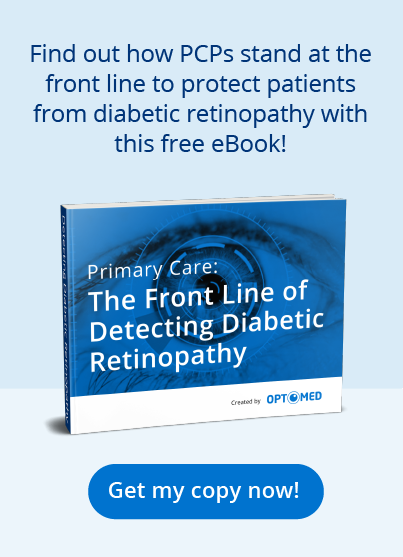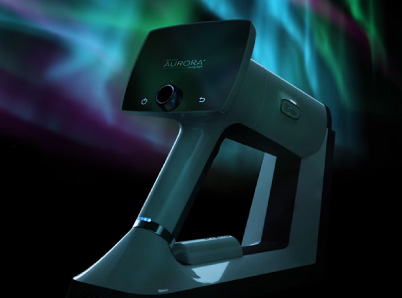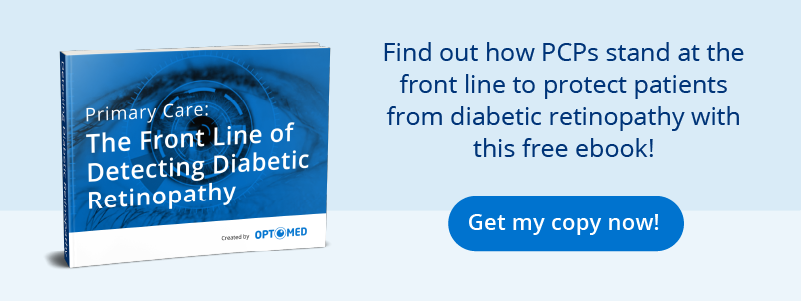Over 10% of the US population is diabetic, which puts them at risk for a host of other complications, including blindness. In fact, diabetic retinopathy is the leading cause of blindness in working-aged adults in the US because of a common diabetic complication known as diabetic retinopathy.
But diabetic retinopathy does not have to result in blindness! In most cases, the condition is treatable. In fact, the main obstacle to successfully treating diabetic retinopathy is simply lack of screening.
Patient Obstacles in Diabetic Retinopathy Screening
For patients, the reasons for avoiding screening can be somewhat complex. Many patients struggle with low or fixed income, forcing them to make financial trade-offs when it comes to health care. These may involve not being able to afford the copay associated with visiting a specialist, prioritizing more urgent healthcare, or simply lacking transportation.
Other patients find that health literacy is a challenge: understanding the recommendations of health professionals is difficult, so seeking out an eye specialist when their eyes seem fine doesn’t add up. Unsure of what course to take, many will delay making decisions and receiving screening.
Finally, some patients are simply overwhelmed by the discouragement, frustration, and anxiety of dealing with their own health concerns. They find it difficult to diet, medicate, screen, and exercise according to their doctors’ advice. They might even feel burdensome to others and to themselves. This can cause them to avoid healthcare and screenings.
Physician Obstacles in Diabetic Retinopathy Screening
However, the risks are too high to ignore. The CDC estimates that nearly one-third of diabetes patients over the age of forty are affected by diabetic retinopathy, with a disproportionate impact on minority patients. Primary care providers (PCPs) understand that their diabetic patients need to be properly screened for diabetic retinopathy.
But significant obstacles prevent PCPs from coordinating widespread screening for diabetic retinopathy. For one thing, many PCPs lack the equipment and expertise to perform a screening of the eye’s fundus. Using a direct ophthalmoscope can be insufficient to get a clear image of the back of the eye and the extent of damage to the retinal blood vessels. Other traditional instruments for ocular funduscopy are unwieldy, unfamiliar, and impractical for a primary care practice.
Furthermore, making a referral to an ophthalmologist is not always practical. Many PCPs don’t have enough data to be sure the referral is necessary, which puts the burden on all parties involved.
Optomed Makes It Possible: Fundal Imaging Made Simple
Screening at the primary care level is desirable for several reasons. But for this to happen, a method of accurately imaging the eye’s fundus must be available and meet certain criteria:
- The technology should be easy to use, not only for ophthalmologists but also for all medical professionals in a primary care practice. If this is the case, scheduling and performing screenings will be simple and cost-effective.
- The technology should be designed to readily integrate into existing office structures and EHR systems. A machine with a small footprint and excellent syncing capabilities would be not only ideal but also arguably imperative.
- The technology should be extremely reliable. Patients and doctors should have every confidence that the imaging is precise, clear, and dependable, every time.
- The technology should be cost-effective and affordable. In order for practices to offer a new procedure or utilize a new technology, the cost-benefit analysis has to make financial sense, as well as medical sense.
All of the above reasons make Optomed a practical and desirable choice for PCPs trying to meet this essential screening need for their patients. Based in Finland and founded in 2004, Optomed has pioneered mobile eye screening technology for over fifteen years. Our imaging process and quality are second to none, and our easy-to-use mobile technology is a revolution in the field.
- Optomed’s handheld, mobile Aurora cameras are easy to use. Intuitively designed and easily operated, our cameras are accessible for use by all medical professionals.
- Optomed cameras are lightweight, do not require a fixed location, and integrate easily with existing EHR systems. There is no need to dedicate a specific room or area for use with our camera; doctors and nurses can go from patient to patient carrying the device with ease. Additionally, our cameras produce high-quality images that can be seamlessly inputted into a patient’s digital record through wireless capability.
- Our cameras are used by major public hospitals, privately-owned practices, non-governmental organizations, and medical charities worldwide. Optomed’s camera is also listed on the standard list of The International Agency for the Prevention of Blindness. Optomed’s imaging technology produces images that are clear and accurate and have a 50-degree field of vision. Additionally, the cameras operate without the need for mydriatic treatment, making the screening much more accessible and agreeable to patients.
- Optomed cameras are affordable. As a global partner in vision screening, Optomed provides cutting-edge technology at an affordable price for hospitals, clinics, private practices, and other healthcare organizations. The affordability of an Optomed camera, as well as the reimbursement that PCPs receive from performing retinal screenings, make choosing one of our cameras a financially sound decision.
Learn More about How Optomed Can Support Your Patients
Diabetes is a manageable condition. With proper screening, one of its most debilitating complications, diabetic retinopathy, can be successfully diagnosed and treated. Optomed is committed to making that screening available to as many patients as possible through affordable, intuitive, portable cameras that produce world-class images.
Here at Optomed, our mission is to help save the vision of millions of people. By integrating our software and artificial intelligence solutions with our camera, we enable eye screening for everyone, wherever they are. To see how we can equip you to save the sight of more patients, schedule a free consultation today!



